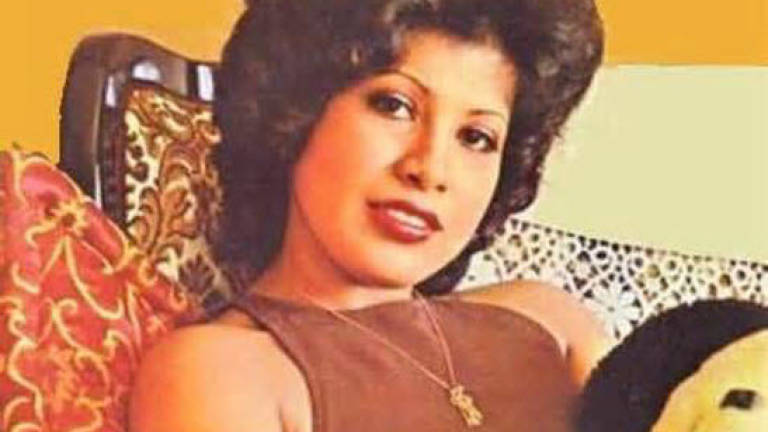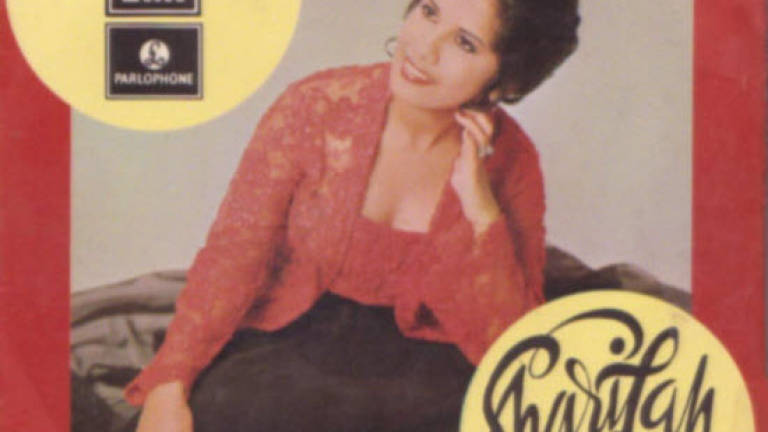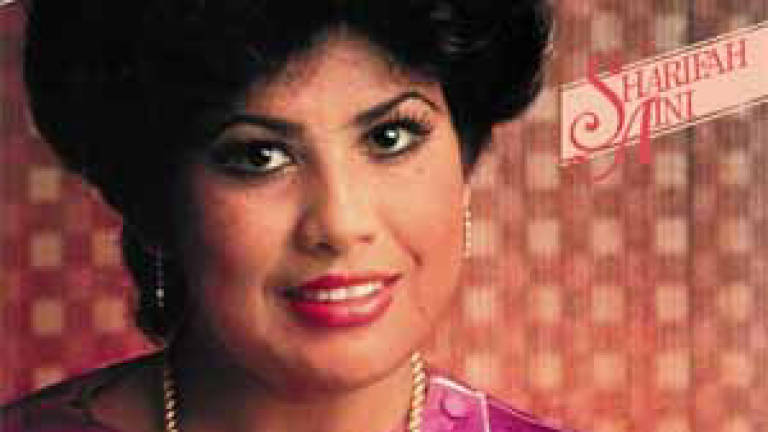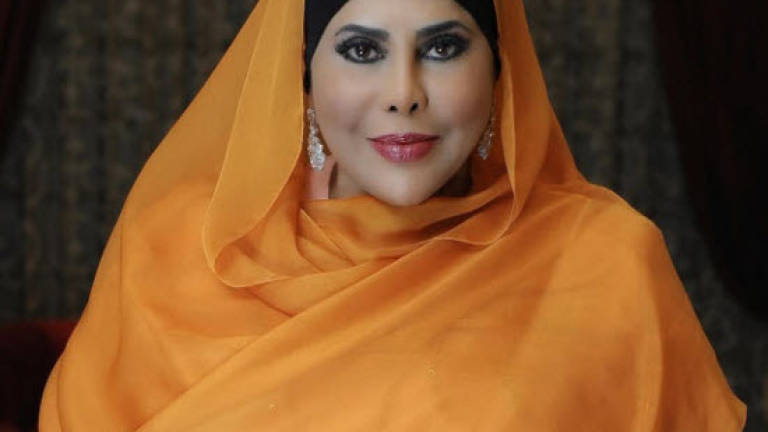Farewell to our queen of songs






JULY 5 marked a sad day for our music industry. It’s the day we lost our nightingale, our queen of songs Datuk Sharifah Aini.
The 61-year-old, who had illuminated the Malaysian music scene with her melodious voice and time-enduring songs for more than five decades, finally succumbed to lung fibrosis at 1.26am at the Damansara Specialist Centre in Petaling Jaya.
Sharifah, with over 90 albums to her credit, was awarded the Biduanita Negara in 2006 for her immense contributions to the local music industry. She was the second female artiste to receive the title after Puan Sri Saloma.
I had the opportunity to interview this legendary singer several times. She was never afraid to speak her mind. Here are some of her thoughts that had appeared in theSun over the years.
Hopefully, these will give readers an insight into the singer, her dreams, desires and also her disappointments.
► On her younger days
It was her grandparents who took care of her. Her childhood years in Johor Baru were not easy ones as the family was very poor.
Her grandfather was only a taxi driver and Sharifah started working when she was just seven years old to earn some extra money.
“There were several jackfruit trees behind my house and I would sell the fruits to the villagers.”
She also ground chillies into a fine paste and earned RM1.50 for every two kilogrammes she sold. Another source of income came from stitching baju kurung Johor, where she earned RM2.50 for every dress she made.
Sharifah even started singing at fun-fairs where she was paid between RM5 and RM10 along with 10 satay sticks.
Despite all the hardships, she was grateful that her (late) grandparents filled her life with love and care. “They gave me so much love that I never felt poor at all.”
► On her ambition
“When I was young, I wanted to be a doctor. I wanted to drive away suffering and illnesses. In many ways, I still do the same thing as a singer. Instead of using medicine, I am doing it with my songs. It feels great to bring joy to others.”
► On her first success
Sharifah’s big break came in 1967 when she entered a singing contest organised by Radio Television Singapore.
She came in second and caught the attention of a recording company which offered her a recording contract.
Her first album, Seri Dewi Malam, was released in 1968 and became an instant hit.
“I came to Kuala Lumpur with only RM75 in my pocket and with an ambition to be someone successful,” said Sharifah, who was hardly 17 years old when fame knocked on her door.
► On music piracy
“With the number of albums I have made, I should have been a millionaire. But I am not. Piracy is robbing us of our income. A lot of hard work goes into producing an album. But in the end, the pirates are enjoying the profits.”
► On valuing experiences
“The music industry always wants to promote young and fresh faces. What about experienced entertainers? It is ironic that when people want to be treated in a hospital, they look for an experienced doctor. They do not want a ‘budak baru’ (young intern) from medical school.”
► On traditional Malay songs
One of Sharifah’s dreams was to promote Malay asli songs abroad.
“Many people have this idea that the only way to penetrate the foreign market is to produce an English album. I personally feel our own asli music stands a better chance. It has enough vigour to have a worldwide appeal. But I can’t achieve this by myself.”
► On Oprah Winfrey
Sharifah had always admired Oprah’s philanthropic efforts. “She has helped countless people who were less fortunate, people from non-developed countries as well as from her own backyard.”
Emulating her idol, Sharifah personally has helped over 2,500 orphans and performed countless charity shows for various charitable organisations and orphanages.
“One advice I would like to give young artistes is to be charitable and give back to the society. The peace you will feel is indescribable.”
► On misconceptions
“People like to think I am a difficult person to work with. [But] I have two maids who have been working with me for the last 20 years. I have a driver who has been with me for the last 28 years.
“If I am so difficult to work with, do you think these people will stay with me for so long?”
► On her most memorable moment
“[The moment] when I became a mother after giving birth to Alif … no woman should miss the experience of childbirth. It is an experience a woman will cherish forever.
“If it could have been possible, I would have had more children. But I could not. So I did the next best thing: I adopted.
“Loneliness is one thing I will never have to fear. Many people do not die of illnesses; they die of loneliness.”
► On regrets
“If there is one thing I would have liked to change in my life, it is to have worked much harder to save my two marriages. The divorces were not easy for me. But some relationships were fated not to be.
“The other thing I would have liked to change, is that I had been too trusting in the past and, as a result, a handful of people had stabbed me in the back. It was painful to be on the receiving end of such betrayals.”
► On love
Despite two divorces, Sharifah once said: “I am too romantic not to believe in love again. I will go where loves takes me, even to Kathmandu!”
► On the man of her dreams
“Physical looks alone are not enough to sustain a relationship. He has to have an interesting personality too.
“I like a man with confidence, who is responsible and also who has a sense of humour. We must be able to make each other laugh a lot.”